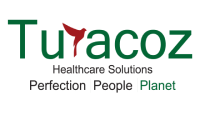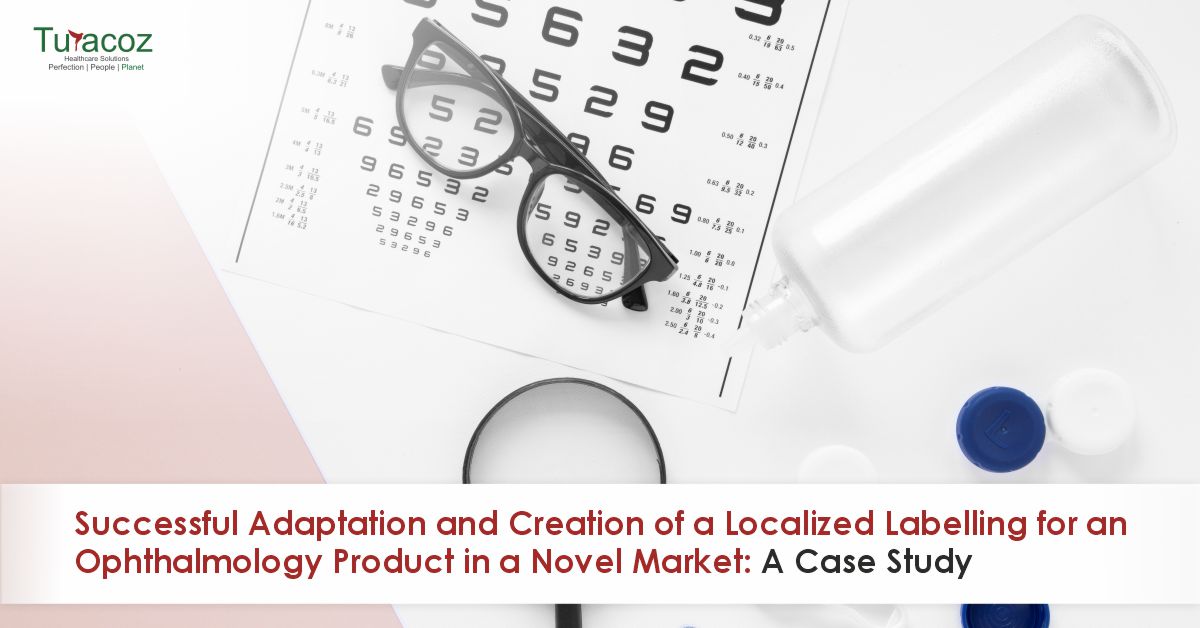With the evolution of the pharmaceutical industry (Pharmaceutical Solutions), expanding into new markets presents both opportunities and challenges for companies seeking to address diverse healthcare needs. This case study delves into the journey of a prominent pharmaceutical company as it embarked on a mission to introduce its innovative ophthalmology product, to the vibrant market of Sri Lanka.
With a commitment to providing cutting-edge healthcare solutions, Turacoz, the best medical writing agency, recognized the potential of tapping into emerging markets to broaden its reach and impact. Successful entry into a new market requires more than just introducing a product; it necessitates a deep understanding of local nuances, regulatory requirements, and healthcare practices.
In this context, Turacoz, a medical writing services company understands that the creation of localized labeling (LBL) emerges as a crucial component, serving as a conduit for effective communication between pharmaceutical companies and healthcare professionals (HCPs) while ensuring regulatory compliance and patient safety. Against this backdrop, the Turacoz embarked on a strategic initiative to develop localized labeling tailored to the unique needs and preferences of the Sri Lankan market.
Turacoz, the medical communications agency accepted this endeavour that posed multifaceted challenges, ranging from adapting existing European data to managing a time-sensitive timeline for delivery. However, armed with determination and a commitment to excellence, the client partnered with Turacoz, a renowned medical writing agency, to navigate these challenges and achieve their objectives.
This case study provides a comprehensive overview of the client’s objectives, the challenges encountered, Turacoz’s methodology and approach, the results achieved, and the ultimate outcomes of this collaborative endeavour. Through meticulous research, data synthesis, and strategic communication, the client and Turacoz embarked on a journey marked by innovation, collaboration, and ultimately, success. The following sections delve into the intricacies of this journey, offering insights into the strategies employed and the lessons learned along the way.
Click Here:- Alarming Retraction Trends: Over 10,000 Research Papers Withdrawn in 2023
Client Background:
The client, a leading pharmaceutical company in the global market, identified an opportunity to expand its presence in emerging markets such as Sri Lanka. With a commitment to delivering innovative healthcare solutions, the client sought to introduce its ophthalmology product, to address unmet medical needs in the region.
Objectives:
Amidst the complexities of entering a new market, the client’s objectives underscored not only the importance of product localization but also the imperative of aligning with local regulatory standards and healthcare practices. Recognizing the pivotal role of the localized labeling in facilitating this alignment, the client sought a partner equipped with the expertise and agility to navigate the intricacies of cross-cultural adaptation. With a firm commitment to delivering tailored solutions that resonate with local stakeholders, the client embarked on a collaborative journey with Turacoz to translate their objectives into tangible outcomes.
- Market Entry: The primary objective was to establish a foothold in the Sri Lankan market by launching a promising ophthalmology product known for its efficacy and safety profile.
- Localization of Labelling: To ensure regulatory compliance and effective communication with healthcare professionals (HCPs), the client aimed to develop a localized labeling (LBL) reflecting the latest clinical data and safety information relevant to the Sri Lankan population.
- Timely Delivery: Given the urgency of market entry initiatives, the client prioritized the timely development and delivery of the LBL while maintaining high standards of accuracy and quality.
Challenges:
The project encountered several challenges, including:
- Data Adaptation: Adapting existing European data for the Sri Lankan market posed a significant challenge due to differences in demographics, healthcare practices, and regulatory requirements.
- Timeline Management: The time-sensitive nature of the project necessitated efficient timeline management to ensure timely delivery without compromising on quality.
Turacoz Methodology and Approach:
- Assessment of Existing Data: The project commenced with a thorough assessment of available literature and data related the European market. This evaluation provided insights into the efficacy and safety profile of the product.
- Literature Search and Review: A comprehensive literature search was conducted utilizing reputable databases such as PubMed and Scholar. The search focused on identifying relevant studies, clinical trials, and scientific publications conducted in the Asian population, with a specific emphasis on Sri Lanka.
- Data Synthesis and Adaptation: The identified literature and research findings were synthesized and analyzed to extract pertinent efficacy and safety data applicable to the Sri Lankan context. European data were substituted with Asian studies wherever appropriate, ensuring alignment with local demographics and healthcare practices.
- Graphical Presentation: To enhance readability and comprehension, the results were presented graphically, utilizing visual aids such as charts, graphs, and tables.
Results and Outcomes:
The Turacoz team successfully addressed the challenges and objectives outlined by the client, leading to the following outcomes:
- Development of Localized Labelling: A comprehensive and coherent LBL tailored to the Sri Lankan market was created, incorporating the latest efficacy and safety data.
- Client Satisfaction: The client expressed satisfaction with the final deliverable, highlighting the accuracy, readability, and relevance of the developed LBL.
- Integration with Veeva: Minor adjustments were made to incorporate the client’s branding elements, and the LBL was seamlessly integrated into the Veeva platform for distribution and dissemination.
Conclusion:
The successful adaptation and creation of localized labelling for the Sri Lankan market exemplify the efficacy of a strategic approach combining thorough research, data synthesis, and effective communication. By addressing the unique challenges posed by data adaptation and timeline management, Turacoz demonstrated its capability to deliver tailored solutions to meet client needs. This case study underscores the importance of adapting global strategies to local contexts in the pharmaceutical industry, facilitating seamless market entry processes and ensuring effective communication with healthcare professionals.






























